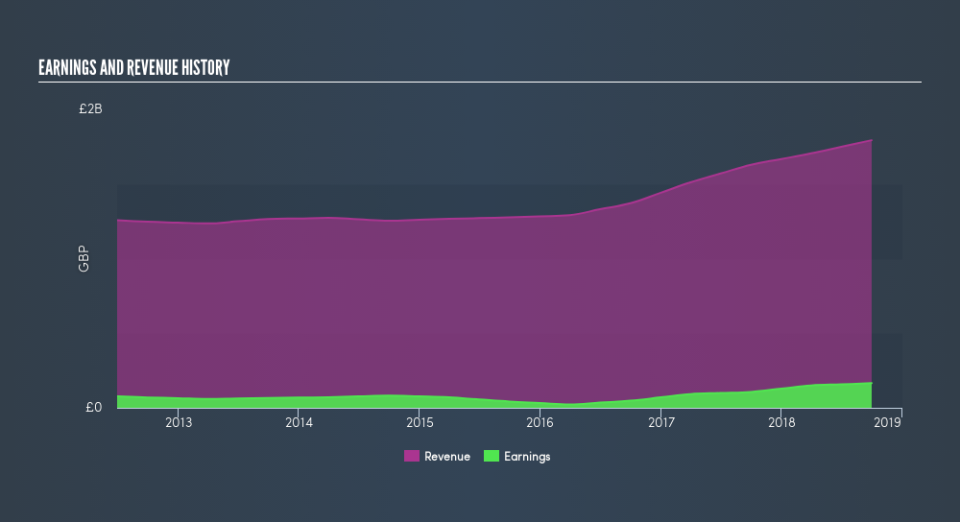How Electrocomponents plc (LON:ECM) Can Impact Your Portfolio Volatility

If you own shares in Electrocomponents plc (LON:ECM) then it's worth thinking about how it contributes to the volatility of your portfolio, overall. In finance, Beta is a measure of volatility. Volatility is considered to be a measure of risk in modern finance theory. Investors may think of volatility as falling into two main categories. The first type is company specific volatility. Investors use diversification across uncorrelated stocks to reduce this kind of price volatility across the portfolio. The other type, which cannot be diversified away, is the volatility of the entire market. Every stock in the market is exposed to this volatility, which is linked to the fact that stocks prices are correlated in an efficient market.
Some stocks mimic the volatility of the market quite closely, while others demonstrate muted, exagerrated or uncorrelated price movements. Some investors use beta as a measure of how much a certain stock is impacted by market risk (volatility). While we should keep in mind that Warren Buffett has cautioned that 'Volatility is far from synonymous with risk', beta is still a useful factor to consider. To make good use of it you must first know that the beta of the overall market is one. A stock with a beta below one is either less volatile than the market, or more volatile but not corellated with the overall market. In comparison a stock with a beta of over one tends to be move in a similar direction to the market in the long term, but with greater changes in price.
Check out our latest analysis for Electrocomponents
What does ECM's beta value mean to investors?
Given that it has a beta of 0.82, we can surmise that the Electrocomponents share price has not been strongly impacted by broader market volatility (over the last 5 years). This suggests that including it in your portfolio will reduce volatility arising from broader market movements, assuming your portfolio's weighted average beta is higher than 0.82. Beta is worth considering, but it's also important to consider whether Electrocomponents is growing earnings and revenue. You can take a look for yourself, below.
How does ECM's size impact its beta?
Electrocomponents is a reasonably big company, with a market capitalisation of UK£2.8b. Most companies this size are actively traded with decent volumes of shares changing hands each day. It is a little unusual to see big companies like this trade on low beta values. Oftentimes there is some other clear influence on the share price, overshadowing market volatility.
What this means for you:
One potential advantage of owning low beta stocks like Electrocomponents is that your overall portfolio won't be too sensitive to overall market movements. However, this can be a blessing or a curse, depending on what's happening in the broader market. In order to fully understand whether ECM is a good investment for you, we also need to consider important company-specific fundamentals such as Electrocomponents’s financial health and performance track record. I urge you to continue your research by taking a look at the following:
Future Outlook: What are well-informed industry analysts predicting for ECM’s future growth? Take a look at our free research report of analyst consensus for ECM’s outlook.
Past Track Record: Has ECM been consistently performing well irrespective of the ups and downs in the market? Go into more detail in the past performance analysis and take a look at the free visual representations of ECM's historicals for more clarity.
Other Interesting Stocks: It's worth checking to see how ECM measures up against other companies on valuation. You could start with this free list of prospective options.
We aim to bring you long-term focused research analysis driven by fundamental data. Note that our analysis may not factor in the latest price-sensitive company announcements or qualitative material.
If you spot an error that warrants correction, please contact the editor at editorial-team@simplywallst.com. This article by Simply Wall St is general in nature. It does not constitute a recommendation to buy or sell any stock, and does not take account of your objectives, or your financial situation. Simply Wall St has no position in the stocks mentioned. Thank you for reading.

 Yahoo Finance
Yahoo Finance 
